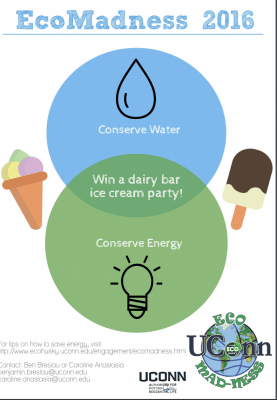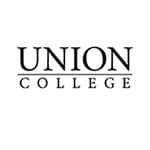Honestly I think that there have been some incredibly viable and productive ideas that have both been produced in this class and through past Green Fee proposals. Obviously plastic waste and the absurd amount of disposable cups that go through this campus could be the most plausible, but I think competition needs to be inherent within these projects. Something like using an existing program, coffee stamp cards maybe, and every time you bring a reusable coffee mug to Starbucks or Dutch you get a punch on your card. The person with the most amount of completed cards could receive declining or have a more legitimate prize which could further motivate the students. In the end there is a lot left to be done, I found a very interesting report on sustainable College Campuses in America that lists Green Mountain College as the most sustainable campus in America.
Daily Archives: October 21, 2018
Ditching plasticware
Plastic is integrated thoroughly in Union College’s dining services. Plasticware, straws, and lids for paper coffee cups are offered in all dining halls and Wold Starbucks and it’s improbable to think that all of these different plastics are recycled. There is plasticware in my off-campus house which never gets recycled when used and the coffee cups from union dining services are countlessly tossed into the regular trash instead of recycling. Moreover, plastic is terribly unhealthy considering the chemicals necessary to produce such objects. I propose that all plasticware is banned on Union’s campus and I’m including the straws and the lids because while they are small in size, they are hugely detrimental to the environment given their frequent usage. Upper dining hall has a washing station for silverware, why not connect that station to a potential one in Dutch? I am rarely at skellar, so I’m not positive on the utensils that are offered, but plasticware should be outlawed there as well as West. Getting rid of plastic utensils and other miscellaneous plastic objects should be a Union priority if the school is serious about environmental sustainability.
Green Fee Proposal
My idea is to apply for a grant in order to fund research about the cost/benefit of green renovations to the residence halls. This is important because while the administration and trustees may think renovations are not in the budget, it could save money in the long term. This research would focus on assessing how long it would take for certain renovations to pay back themselves and be more cost-effective than just maintaining the current system. The main renovation that I think is important is a new heating system because that seems to be an area that generates a lot of unnecessary energy. If we could show the board concrete data supporting that renovations such as these will save the school money, they may be more likely to dedicate funds to such a project. This would benefit this school, the environment, and the students’ quality of life.
Green Fee Proposal: Wind Energy
Union College is known for the Nott Memorial, and the students of Union College know that the wind that is generated around the Nott across the Rugby field can be very strong. As a college, we should work to utilize this potential wind energy and put in wind turbines or a windmill that can harness the wind energy that is generated. Although wind turbines are unattractive, they could be beneficial considering how hard the wind blows and the energy we would receive could potentially save our school a lot of money. Every student at our school can vividly remember how strong and cold the winter winds are on our campus. If we could harness and store that energy then our school could potentially utilize a majority of this wind energy when weather conditions are optimal.
Paper Reduction Proposal
My green fee proposal concerns reducing the amount of paper used on campus. Paper makes up 27% of municipal solid waste in the U.S., more than any other material that Americans throw away. College campuses are clearly a place of mass consumption of paper due to the amount of assignments printed, tests, and note taking. In order to reduce this, I would suggest that all professors ban printing of assignments and use online submissions for grading instead. Another suggestion is requiring online note taking rather than writing them out in a majority of classes besides upper level math or engineering etc. Finally, we should only purchase paper that is made from recycled materials. For example, there is already a few notebooks in the bookstore made from these recycled materials. Although this idea can be tricky for reasons such as better memory retention of written out notes, or classes that cannot type equations, I think that it can help with certain classes. Together, the individual paper-saving efforts made across departments can help to reduce Union College’s waste and carbon footprint, building momentum towards becoming a more sustainable campus.
Presidential Green Grant Proposal
To make Union more sustainable, I propose that Union College should expand dining options on campus.
I, for one, frequently visit local eateries for meals when instead I could choose to stay on campus. No, its not sustainable for me to do so, nor is it eco-friendly. But occasionally my stomach overrules the voice in my head. I get tired of the same, bland dining hall food, or of the same 12 options shared between Reamer and Rathskeller.
I think its also obvious that, compared to other schools, Union lacks a variety of dining options.
RPI, in addition to its dining hall, has a Moe’s and an on-campus pizzeria.
Cornell, according to a recent study, has nearly 30 different on-campus eateries, and ranks 5th-in the nation in terms of colleges with the best food.
Take a poll of Union students. I think the vast majority would agree that Union could stand to add some dining variety to on-campus life.
Having to seek a change of pace for a meal off-campus shouldn’t be necessary. And it sure isn’t sustainable.
Green Fee Proposal
It’s been discussed a bit before, but I think a solid idea to lower plastic waste on campus would be by giving all freshman a metal or plastic refillable water bottle, whilst getting rid of plastic cups and purchasable plastic bottles in reamer. This plan would only work if we got rid of plastics in reamer, as it would force students to use the water bottles that are given to them. Union already has refill stations in place around campus, so the only real cost would be the purchasing of the bottles for incoming freshmen. The campus would also save money, as the cost of purchasing plastic water bottles and cups for reamer would be taken out. Also, by having students use their own bottles, the mindset of not wasting plastic would also be instilled in the campus community and would hopefully be remembered for the rest of their lives.
Plastic vs. Reusable Bags
My proposal for the Green Grant would be to give each first-year a reusable grocery bag. The overall goal of this change would be to reduce the number of disposable plastic bags that are used on campus. This reusable bag would be given to first-year students at orientation, much like the reusable water bottles that were given to my class. These bags’ purpose would be for food and bookstore items. Any students buying snacks, getting upper to go or grabbing a salad from O3, can use the reusable grocery bag. Also, I believe that incentivizing this usage by offering a 3% discount on all bookstore food purchases for students who bring the reusable bag would help encourage the success of the program. Students would save declining, and the planet in the process. If the average size of the new freshman class is about 510 students (rough estimate), then it would cost Union about $0.95 per bag, with a total cost of $484.50. Now, one order of the biodegradable plastic bags that Union currently uses in the bookstore (1000 bags per order), costs $90.29. If the bookstore saw just a 10% decrease in demand for plastic bags per term, that would mean a 30% decrease per academic year; which is significant. Then the college can order fewer plastic bags (ergo spend less money on plastic bags each term), and reduce our waste in a cost-efficient way. The Green Fee Grant is a perfect way to fund this effort and can totally be reasonably implemented next fall.
Green Grant
For My Green Grant proposal, I suggest that Union hold a competition to see which residential building can use the least energy and water per capita over a given month and reward the residents of winning building with an addition to their declining balance. A similar competition is run at the University of Connecticut called EcoMadness. Prizes are rewarded to the building with the lowest per capita water usage, the lowest per capita energy usage, and the greatest percentage reduction in both energy and water usage.
As a result of EcoMadness 2016, the winning residential building at the University of Connecticut for lowest per capita water usage decreased their water usage by 20% in one month. The winning residential building for the lowest per capita energy usage decreased their energy consumption by 32% in one month. If the Green Grant were to be used to hold a competition at Union and yield similar results, that would be an enormous decrease in energy and water usage in just one month.
Climate control
For my Green Fee proposal, I would use the 25,000 dollars allocated to the project to reform the Union College heating and cooling systems that are used in numerous building especially Bailey Hall on campus. The system currently analyzes too many classrooms grouped together to turn on heat or air conditioning based on what temperature conditions are currently at. This system often turns on heat or air conditioning in classrooms not being utilized because they are adjacent to ones being used which causes an overuse of energy to power the systems to heat or cool the given space. With the added money, one would be able to increase the number of sensors so that it could be as close to room to room analyzation as possible. That way if one class is in session next to an empty room and has the windows open altering the temperature of the building and rooms adjacent to it the system will not kick on to try to fix and average the temperature of all of them, instead just the singular one which is in use. As we know not all classrooms are used at the same times and different professors and classrooms call for different temperatures to teach and participate in. If this could be put into action it would allow more individuality to the campus classrooms for heating and cooling saving the cost and process that revolves around it. It is not an inexpensive process nor environmentally friendly process to use air conditioning and heating mechanisms. This could cut down the overall energy allocated through the power system of Union College reducing the energy that is taken which is necessary to power them.


